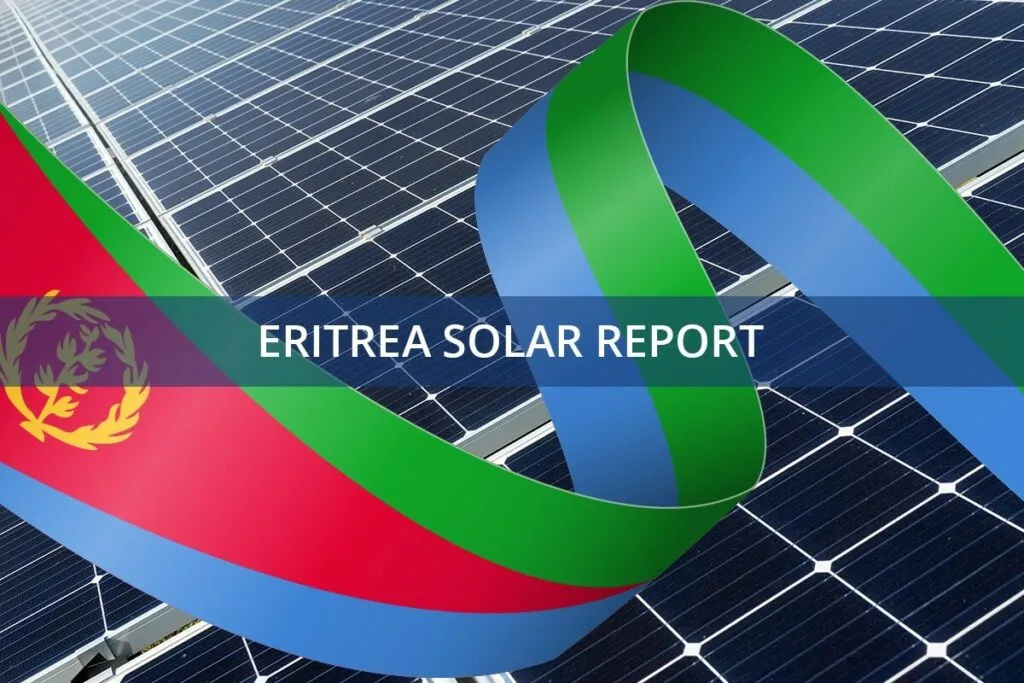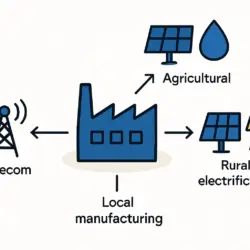Eritrea Expands Energy Access with New Solar Agreement
The Eritrean Ministry of Energy and Mines has signed a $20 million agreement with Solarcentury, a subsidiary of BB Energy, to expand solar energy infrastructure in Eritrea’s Western region. This project will bolster the nation’s renewable energy capacity and aligns with its goal of achieving universal electricity access by 2030.
According to Africa Press, the agreement was signed in Asmara by Eritrean Minister of Energy and Mines, Mr. Debretsion Gebremichael, and Solarcentury CEO, Dr. Frans van den Bosch. Senior officials from both organizations attended the ceremony, alongside representatives from the African Development Bank (AfDB) and other development partners.
Solar Project to Provide Electricity to Over 300,000 People
Scheduled for completion within two years, the project will construct two 10-megawatt (MW) solar power plants. These new Eritrea plants will connect to the national grid, providing clean electricity to more than 300,000 residents in the towns of Barentu, Tesseney, and Agordat.
The new solar facilities will significantly reduce Eritrea’s reliance on fossil fuels, which currently generate over 90% of the nation’s electricity. This initiative is a crucial part of the government’s National Electrification Program (NEP), which aims to increase renewable energy’s share of the electric power supply to 50% by 2030.
Minister Debretsion Gebremichael emphasized the project’s significance for Eritrea’s energy security and economic growth: “This project is a major milestone in our efforts to achieve universal access to electricity by 2030. It will not only provide clean and reliable energy to our people but also create jobs and stimulate economic growth in the Western region.”
Solarcentury Commits to Eritrea’s Renewable Goals
Solarcentury CEO Dr. Frans van den Bosch affirmed the company’s commitment to supporting Eritrea’s renewable energy aspirations: “We are delighted to partner with the Eritrean government on this project, which will have a significant impact on the lives of hundreds of thousands of people. Solar energy is a key enabler of sustainable development, and we are committed to helping Eritrea achieve its renewable energy targets.”
The African Development Bank (AfDB) is co-financing the project as part of its Desert to Power initiative, which aims to develop 10,000 MW of solar power across 11 Sahel region countries by 2025. The AfDB’s involvement underscores the critical role renewable energy plays in tackling Africa’s energy access and climate change challenges.
Project Aligns with National Climate and Development Goals
Eritrea’s commitment to renewable energy is further reflected in its Nationally Determined Contribution (NDC) under the Paris Agreement. This plan targets a 40% reduction in greenhouse gas emissions by 2030 compared to business-as-usual levels, and expanding solar infrastructure is a key part of that strategy.
By providing clean, reliable energy, the solar project in Eritrea’s Western region will transform the lives of hundreds of thousands. It will enhance access to essential services like healthcare and education, spur economic growth, and contribute to the nation’s long-term development goals.
This collaboration with Solarcentury and the African Development Bank underscores Eritrea’s dedication to renewable energy and sustainable development. As the country builds out its solar energy infrastructure, it moves closer to its goal of achieving universal electricity access by 2030.


